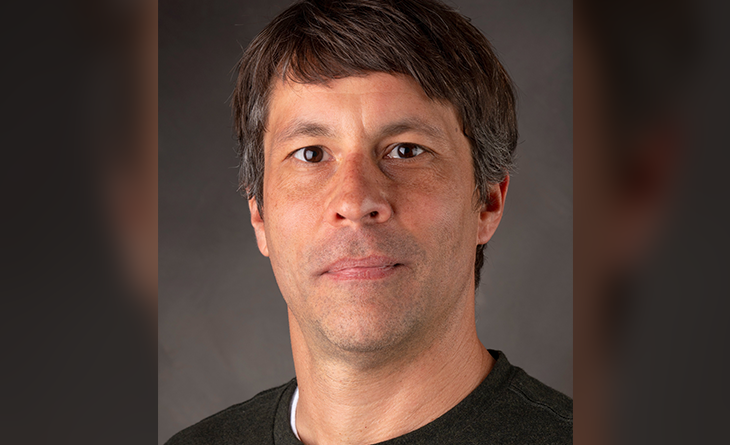In My Words: Stop ignoring the mental health of young men
In this column distributed by the Elon University Writers Syndicate, Senior English Instructor Greg Hlavaty emphasizes the importance of mental health care for young men to help prevent violence. This column was published in the Greensboro News & Observer, The Fayetteville Observer and the Burlington Times-News on Nov. 11.
Share:
Written by Greg Hlavaty
When 14-year-old Colt Gray first made headlines as the suspect in the September shooting at Appalachee High School in Georgia, I counted him as one of the youngest psychopaths this country has ever seen. produce regularly.
But when his aunt said that he was “asking for help from everyone around him,” my opinion changed. Recent investigations now make it clear that Colt provided many warning signs, including building a “temple” on some school guns. According to recent testimony, Colin Gray, Colt’s father, said he briefly asked Colt about the shrine bearing the image of Parkland gunman Nikolas Cruz, but as GBI special agent Kelsey Ward said : “[t]there was no more discussion about that. ”
It’s become a common story that it’s only after a school shooting that we hear that the accused confided in a trusted adult — or posted threats on a social media platform — and quietly sneaked in or were ignored.
But ignoring troubled young men is nothing new. When I was Colt’s age, I drew a picture of my teachers, a house of heads with a knife pulled from each. Blood, of course. My mother was devastated, but I was not cured. It is true that this was 17 years before the massacre at Virginia Tech raises the question of whether the violent art of youth can be considered a credible threat.
Later, I publicly thought about killing my classmate. My father had a gun, a Glock 9mm, which was always unlocked in the closet. Alone at home, I would look at the gun, imagine its power, how tough I would look when I used it. Why didn’t I use it? To me or to my classmate?
I think what saved me were the men who stepped in as surrogate fathers. Instead of trying to make me their image—a move that alienated me from my father, especially when my efforts disappointed him—these men seemed genuinely proud of things. the little things I have achieved.
They weren’t perfect: one was openly racist and boasted of having bricked up the highways in his youth; another was a middle-aged alcoholic—one of my college writing teachers—who always taught drunk. They both sought my friendship and listened to me, listening carefully to my child’s concerns without belittling them.
But they did not save me. When I failed to reach my potential as a writer, my teacher called me out on the street at 2 a.m. Shaken, I spent days rewriting the story, and he responded with a message on my answering machine, reading above the verses of my work and shouting. : “Finally you did it!”
I played and repeated the message again. If you have never felt lonely and unloved, you will not understand the importance of that line. Knowing that I was important softened my hand with the proverbial gun.
In a country with more than 400 mass shootings this year alone, it’s easy to dismiss listening as a naive way to prevent violence, especially if you believe that gunmen can only be psychopaths. Since Columbine, psychologists like Peter Langman, author of School Guns, paint a complex picture of shooters: psychotic, psychopathic and traumatized. We must not allow psychopaths, beyond the reach of empathy, to overshadow the traumatized, who could be helped.
Could Colt Gray have been helped if someone had acted quickly, and effectively? Although I would not defend his violence or pretend to criticize him in the news, I can’t help but ask for help and he failed.
Several caring family members admitted to his troubled home life: Colt’s aunt reported that the boy had “homicidal and suicidal thoughts,” and his grandfather his mother said, “My grandson did what he did because of the environment he lived in.” But seeing a problem is not the same as taking effective action. Traditionally, we seem to have a responsibility to be lawyers, teachers and mental health professionals, but they are limited by institutional structures, and they cannot do this work alone. We need role models for young men, people who show up all the time, people who care and who act before someone starts to lose their mind.
You may not see yourself as a role model; and flawed men who helped me. But still they appeared. Although talking to young people can be difficult, a good starting point would be to listen without belittling, without belittling their concerns. Sometimes all a guy needs is to vent his pain. It is better to do it with words than with bullets.
With the indictment of Colt Gray’s father, everyone is now asking if it is right to hold parents accountable for what young shooters do. The truth is, we are all guilty of turning a blind eye to the plight of young men. We must take responsibility before they turn our fellow students into victims.
#Words #Stop #ignoring #mental #health #young #men
